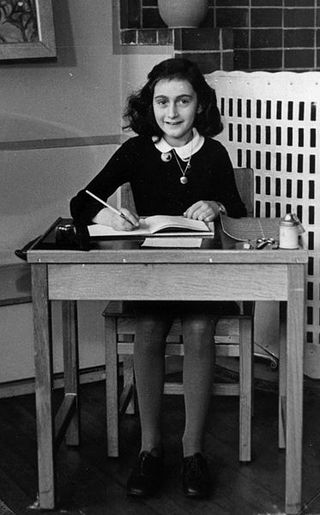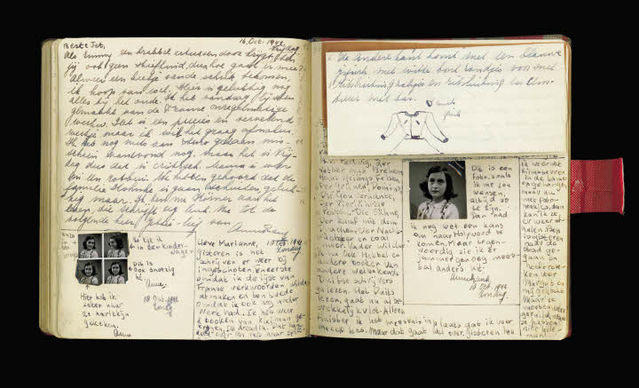Dreaming
How Anne Frank’s Secrets Turned Me into a Writer
Why the confessions of a 13-year-old German girl affected 9-year-old me so much.
Posted January 31, 2017

I first read Anne Frank’s The Diary of a Young Girl when I was about nine years old. As you may remember, Anne received her diary as a gift for her 13th birthday and she used it to chronicle her life, thoughts, and feelings for two traumatic years, from June 12,1942 until August 1,1944 while she and her family hid from the Nazis in several rooms concealed behind a bookcase in a building in Amsterdam.
At the time I was fascinated by what’s now called Holocaust literature and remember also reading John Hersey’s novel The Wall about the Warsaw Ghetto. I grew up in postwar New Jersey and in our house World War II was never discussed, though Roosevelt and Churchill were considered saints. Yes, Jews have saints! It might have been the whispery conversations in the kitchen among the women that piqued my curiosity about the unsaid. Undoubtedly, some of those whispered phrases contained the words Auschwitz and Treblinka.
But it wasn’t Anne’s description of the terror of the Nazi occupation of Holland that intrigued me. Rather, it was that she, like myself, had undisclosed feelings—about her mother, her father, her sister, about Peter van Pels, the young man whose family was in hiding in the Annex with the Franks. It was Anne’s private voicings of her feelings, so similar to mine at the time, that captivated me.
Reading Anne Frank, with whom I identified as a young, sensitive, intelligent Jewish girl, gave me the idea that I could also find words and a place to express myself. I loved the confidential tone with which she addressed her Kitty, the name she called her diary. Anne wrote in her diary: "I hope I will be able to confide everything to you, as I have never been able to confide in anyone, and I hope you will be a great source of comfort and support."

From my perspective, this statement describes the ideal relationship between a writer and her work: truth-telling in the form of an interior monologue. Only later, when I was in high school, did I begin to keep my own diary, never once imagining that I would become a professional author. Almost two decades after that, I returned to school to earn a Master’s in Fine Arts in Creative Writing, but I trace the seeds of my career to that first intimate relationship with Anne’s voice.
As we all know, Anne was not a survivor, but through her words she has survived and changed us.
Post-script: sometime over the years my original copy of The Diary disappeared. In the foreword to the edition I now own, The Definitive Edition, the translator writes that Anne had hoped to someday publish her diary. In 1944, a member of the Dutch government in exile had announced on the radio that after the war he hoped to publish eyewitness accounts of the German occupation. Anne heard this broadcast and planned, after the war, to publish a book based on her diary. So she began to keep two diaries, her original one and an edited version.
This passage has special meaning for me as a writer. Eunice, my protagonist in The Conditions of Love, also keeps a diary. Like her, I believe our words matter. I believe our suffering matters. I believe that out of the raw material of our lives we form art and create beauty. As Eunice’s downstairs neighbor and confidant Mr. Tabachnik says, “From the terrible the beautiful comes.”
Which reminds me of a quote from one of my favorite writers, James Baldwin, who spoke truth from the heart of darkness. In his essay, “As Much Truth As One Can Bear,” he wrote, “In my mind, the effort to become a great novelist simply involves attempting to tell as much of the truth as one can bear, and then a little more.”
Dale Kushner is the author of the novel, The Conditions of Love. She wrote about her decision to become a novelist rather than a Jungian therapist in her first post for Psychology Today, "Treating Patients, Creating Characters." If you enjoyed this post, you may also be interested in "Dreaming Our Lives: 5 Things Our Dreams Could Be Telling Us" and “Understand Your Dreams by Using Jung’s ‘Active Imagination’.” Keep up with Dale by liking her Facebook page. Read more from Dale on her blog.





